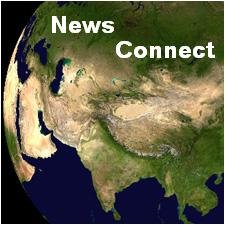However, since our President Bush continues to claim that we're the freest nation on Earth, there must be something wrong with all of us who notice that since the good old days of COINTELPRO, spy agencies have just been growing bigger and more secretive. In fact, there are now 16 separate agencies monitoring electronic communication, hard-line telephone, and near-Earth orbiting satellites taking high-res images of the God-knows-what 24 hours a day. (see this and this for illegal spying unrelated to the post below.)
'The Bush NSA wiretapping scandal'
The most recent attack on the United States citizen is the recently passed Senate bill to give retroactive legal immunity to the telecommunication companies who participated in the government's illegal wiretaps over the last five years. The Bush administration (specifically D. Cheney) were playing hard ball, as usual-- initially, Cheney refused to give anyone any documents at all. That all changed when a federal judge ruled that the NSA wiretapping program was illegal and unconstitutional. This cause a lot of administration and spy staff to shit their collective pants, and simultaneously gave me great (albeit perverse) pleasure.
Now the powers-that-be are attempting to cover their tails and get legal immunity from public lawsuits against the telecom companies. The Senate Democrat who's spearheading this effort is none other than West Virginia representative Jay Rockefeller, a man with a personal fortune of over $100m who, ironically, represents one of the poorest states in America. (Yes, by the way, he's related to that Rockefeller). Here's a pic of him giving his good buddy Bill Clinton an intimate little rub-down... after all, they vacation at the same ranch.

Now here's the best part. Since we still live in a free country, nonwithstanding all the liberties we've lost due to Fighting for Freedom and the War on Terror, Rockefeller's campaign donors are open to inspection. Let's see who's been sliding this respectable gentlemen cash under the table.
Shockingly, it's the very telecommunication companies who have the most to lose in public lawsuits against their illegal and spineless acquiescence to the government's spying program on US citizens.
Bonus Points: The money started flowing in right before this bill began to be worked out with the White House.







